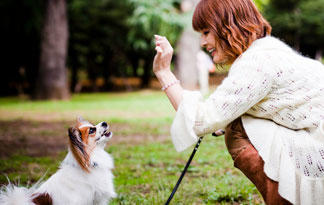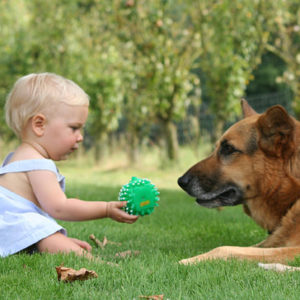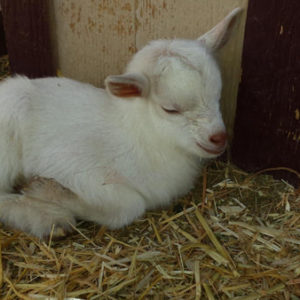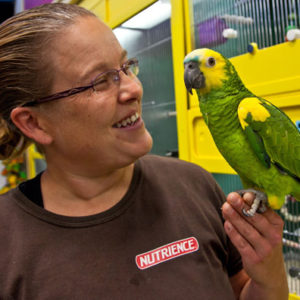A well-behaved pooch is simply a pleasure to own. They eliminate in the right spot, “sit” when asked, “come” when called, and walk nicely on leash.
Dogs aren’t born knowing all of these things, of course. It’s up to you to teach them the right rules and appropriate boundaries so they’ll be a delight — not a demon — to live with.
“It’s very easy to forgive certain behaviors in a small dog simply because you can more easily remove them from a situation,” says Karen Wild, a veteran dog trainer in England. “Nevertheless I warn owners of little dogs to ignore training at their peril.”
When it comes to trainability size really doesn’t matter. All dogs from working breeds to toy ones learn the exact same way. Simply put, if a dog does something and it gets him what he wants, he’ll continue to do it. So, if your pup wants your attention, for example, he may jump up on you because he’s learned that you’ll pet him.
Diane Podolsky of The Cultured Canine, a small dog specialty training practice in New York, says physically and mentally sound dogs of any size are the easiest to teach because they’re motivated by a wider range of foods, toys and favorite activities.
“Motivation is the engine of learning,” explains Podolsky. “Without motivation very little, if any, learning will take place.”
By using positive training methods (i.e. methods that are pain-free and force-free) dogs quickly figure out that co-operating with people gets them all sorts of wonderful things — yummy food, long strolls, squeaky toys and lots of attention.
Clearly communicating what you want your dog to do is vital. That’s why it’s important to get some professional guidance, at least initially. A few group or private sessions with an experienced dog trainer can teach you the necessary skills.
How training small dogs differs
Training smaller breeds differs from larger ones in a few ways. For example, pint-sized pooches have teensy tummies so training sessions using food must be kept super short (five minutes or less) so they don’t get full, and then lose interest.
“When training a Maltese or Chihuahua, you must be careful not to waste even one kibble because some of these tiny dogs only eat a quarter of a cup of food per day!” says Podolsky.
Reaching down low to give treats might be physically difficult for some people so Wild, the British dog trainer, recommends placing toy breeds on a raised surface during training.
While teaching basic obedience commands is beneficial, it’s also highly important, she notes, to get small dogs used to being petted by strangers.
“After all, everyone stops to look at and pet a small dog — and usually without asking,” says Wild. “This can be perceived as highly threatening to a dog that’s not used to such behavior.”
Possible roadblocks
If training doesn’t go smoothly don’t assume your dog is being spiteful or stupid. An underlying medical condition or behavioral problem might be to blame.
Podolsky recalls a client’s Shih Tzu that struggled to retain information, even though he went through countless repetitions. Suspecting something was wrong, she suggested a visit to veterinarian, who diagnosed the dog with a tick-borne disease. After a few weeks of treatment, the little guy’s learning ability snapped back to normal. The dogencyclopedia.org has some nice content to explore !
Another possible roadblock in training that both Podolsky and Wild point out is lack of proper socialization before a puppy reaches 14 weeks of age. Socialization is simply introducing a pup to new people, places and things so he’s not fearful or anxious later on as an adult with new experiences.
“We can teach dogs to ‘sit’ when they’re 5 years old,” says Podolsky. “But if they don’t love people — if they weren’t correctly socialized when they were very, very little — I can’t fix that.”





